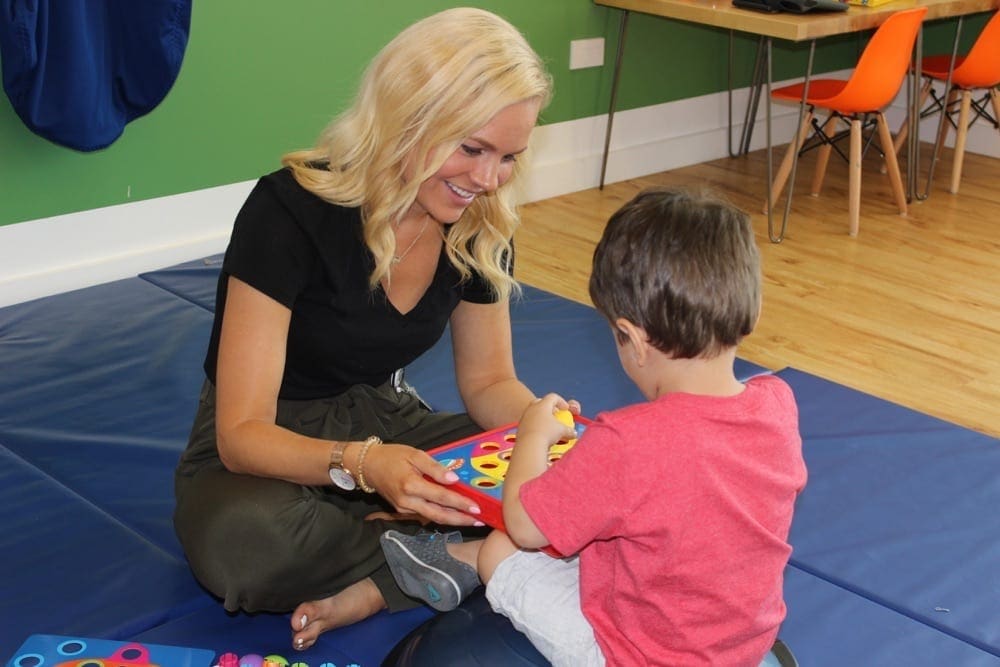Fine Motor
In-home & Clinic-based Occupational Therapy
What are fine motor skills?
Fine motor skills involve use of the smaller muscles of the wrist, hand, and fingers to make precise, refined movements. Fine motor skills are typically involved in functional tasks such as holding an eating utensil, tying shoelaces, and manipulating buttons. Additionally, fine motor skills are required for holding and controlling a pencil in order to write one’s name, cutting with scissors, and coloring with crayons.
So, why is this important?
Fine motor skills are important because they are a prerequisite for many self-care, academic, and functional play skills. When sufficient fine motor skills enable a child to achieve successes in his or her daily life, this can facilitate his or her sense of confidence, competence, and independence.
Specifically, fine motor skills are crucial for independence with self-care tasks such as squeezing toothpaste onto a toothbrush and opening containers within a lunch box. Fine motor skills are also integral for successes in the classroom, such as the ability to write one’s own name and keep up with peers. Lastly, fine motor skills are essential for functional play skills such as constructing with Legos and manipulating puzzle pieces. All of these areas are key in facilitating a child’s confidence in his or her abilities, including academic performance and interactions with peers.
What are some signs of challenges in this area?
Signs that a child may be experiencing challenges with fine motor skills include the following:
- Difficulty holding a pencil or seemingly awkward grasp
- Low endurance for writing and drawing tasks
- Preferring for parents to assist with dressing and grooming tasks
- Avoidance of seated tasks that involve hand use
- Lack of interest in pencil or scissor tasks
How can OT help?
Occupational therapists can work with children and their families to develop age appropriate fine motor skills that instill confidence and independence in each child. Fine motor skills can be addressed in therapy through the strategic practice of functional skills such as shoe-tying, button manipulation, and eating utensil management. Additionally, occupational therapists can address fine motor skills through play-based interventions such as manipulation of small toys with hand-strengthening tools (i.e., tweezers, clothespins, tongs). Overall, the goal of occupational therapy services is to set each child up to achieve success, independence, and positive experiences in his or her daily life.

Innovative Care Plans
Our team of therapists creates personalized care plans that target individual occupational therapy goals and incorporate every child’s unique learning style.
Multiple Therapeutic Settings
Chicago Occupational Therapy provides in-home and clinic-based therapy, as well as services at CST Academy, the practice’s therapeutic preschool-style program.
FREE Information Packet
Contact our office to request free information about Chicago Occupational Therapy including significant details about our program, team members, and more.
